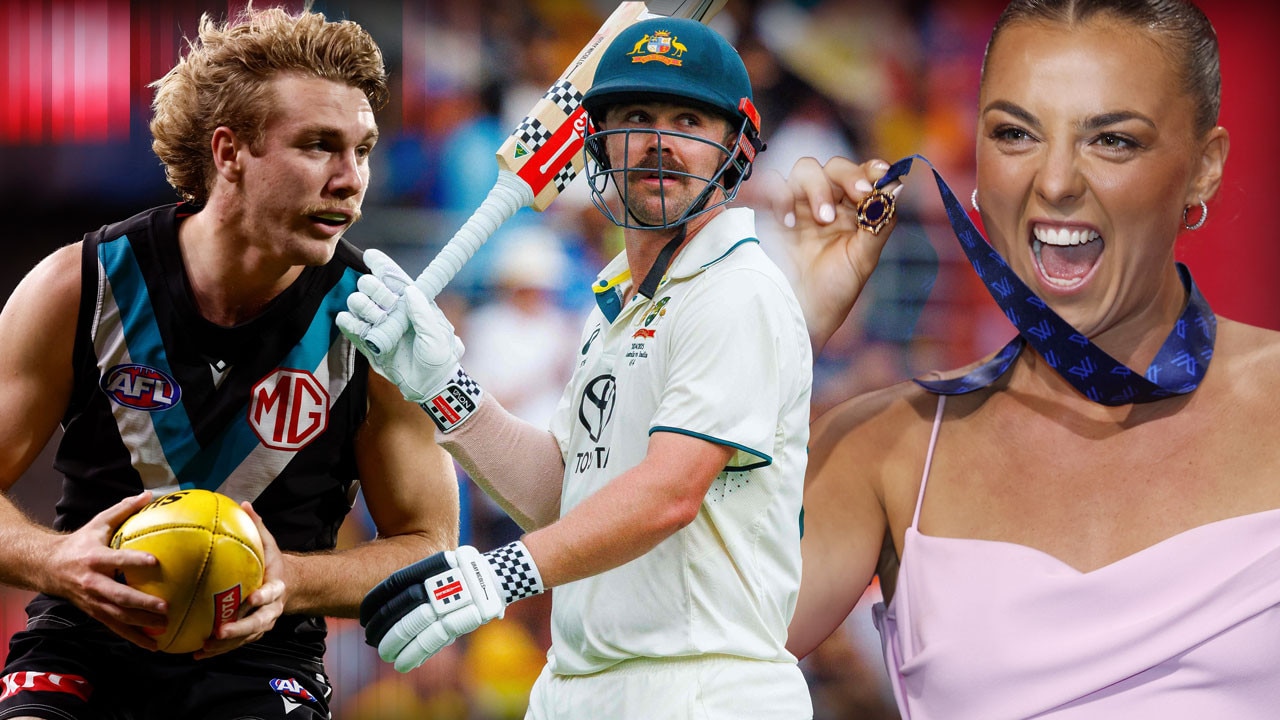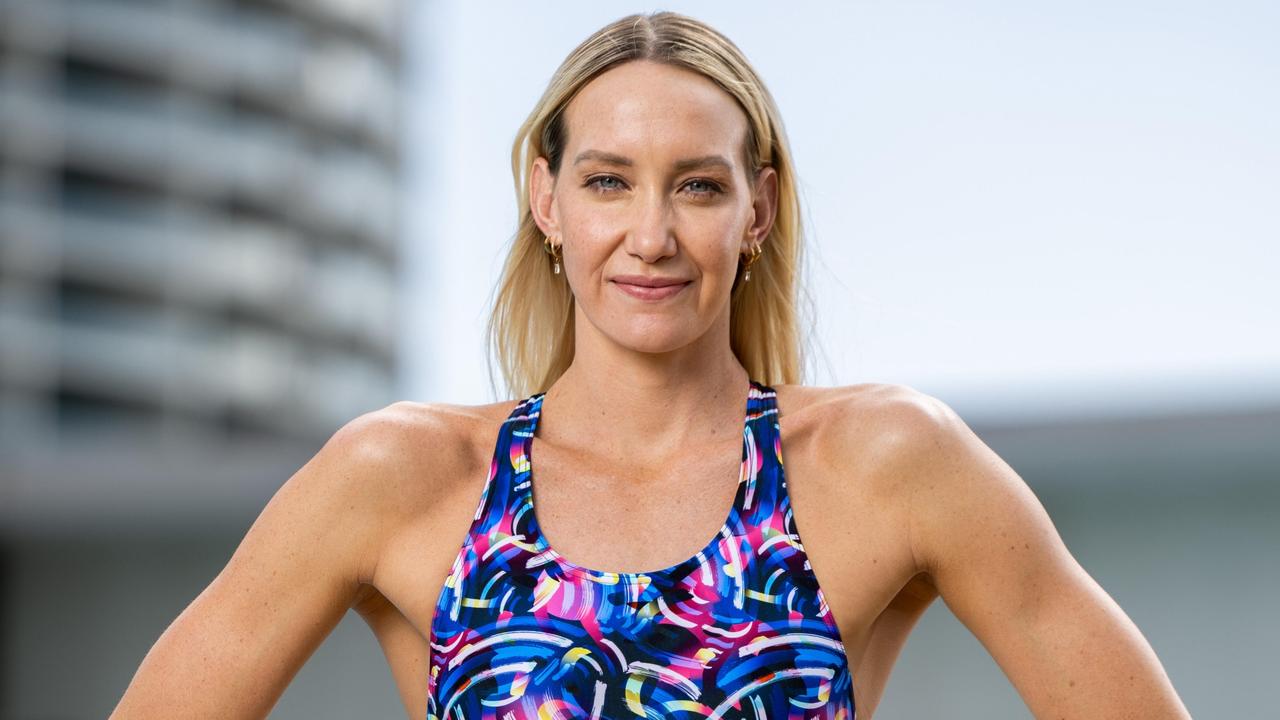50 days from Paris: The burning issues addressed ahead of the Olympic Games
We’re just 50 days out from the start of the Olympics, and Australian team officials are under the pump to finalise their plans. JULIAN LINDEN breaks down their biggest issues in the remaining weeks.
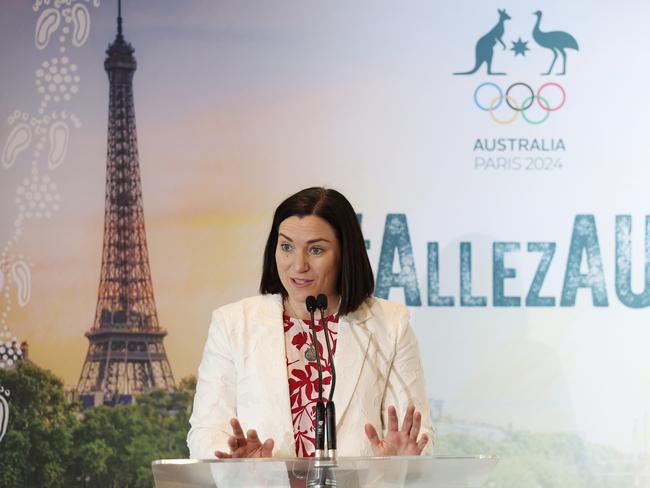
Olympics
Don't miss out on the headlines from Olympics. Followed categories will be added to My News.
With just 50 days to go before the start of the Paris Olympics, Australian team officials are under the pump finalising their intricate plans for the biggest and most challenging multi-sports event since the global pandemic.
Buoyed by the success of the last games in Tokyo, the Australian Olympic Committee (AOC) is expecting a team of over 450 competitors to France, with high hopes of another big medal haul.
But Paris is also presenting an added layer of complications for visiting teams with Aussie officials deep in discussions with their French counterparts to ensure everything goes as smoothly as possible.
Ahead of the 50-day countdown, senior AOC officials held a briefing with Australian media to discuss the biggest issues facing them.
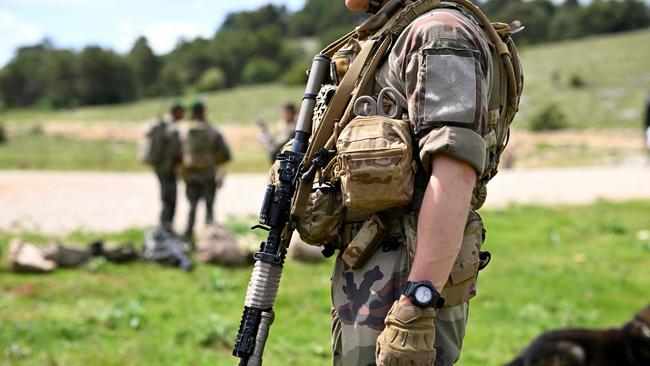
SECURITY
The safety of participants and spectators is always the greatest concern for Olympic organisers - and Paris is no different.
The decision to hold the opening ceremony in open air barges on the river Seine has dramatically increased fears of a possible terrorist or cyber attack.
At least 10,000 armed soldiers will be deployed to the French capital for the duration of the Games, supported by up to 35,000 more police and private security personnel.
Navy boats will patrol the seas and oceans while the airspace above France will be occupied by surveillance planes, fighter jets, helicopters carrying sharpshooters and specialised equipment to identify and disable any threatening drones.
AOC chief executive Matt Carroll said the Australian Federal Police was supporting the Aussie team and while most of the security arrangements remain confidential, he had every confidence in the French authorities to keep everyone safe.
“We are very prepared. Our responsibility is not the security of the Olympic Games. That is the matter for the French authorities.” Carroll said.
“Our responsibility is to make sure we connect into that security and we are.”
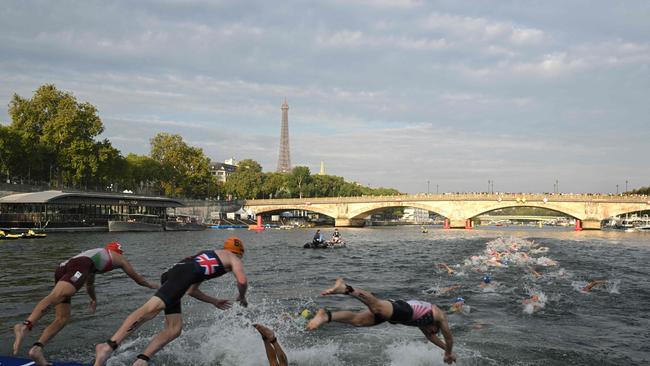
RIVER SEINE
The AOC is closely monitoring the water in the river Seine, where French officials are planning to hold the triathlon and marathon swimming events.
Swimming has been banned in the Seine for over a century because the water is so polluted from industrial sewage and sanitary overflows which spill into the canals whenever there is heavy rain.
But ambitious French organisers vowed they would fix it, declaring that the regeneration of the Seine would be the ultimate legacy of hosting the Olympics but so far it’s been a flop with the waterway still recording dangerously high levels of E-coli and enterococci, which come from faeces and can cause serious infections that can lead to illness, diarrhoea and kidney failure.
Australia’s chef de mission for the Games, Anna Meares, said she was still hopeful the river would be clean up but said the AOC would not be telling athletes whether they could dive in or not.
“It’s not a point of us stepping in to say ‘we will not let you swim’. Ultimately it’s the choice of the athlete,” she said.
“We’re not going to put any athlete in an environment that risks their wellbeing, that information will be given to them and that choice will ultimately be theirs.
“Try standing in front of an Olympian who’s trained for their whole life when they have the chance to swim and ... tell them ‘no’. It’s not going to happen.”
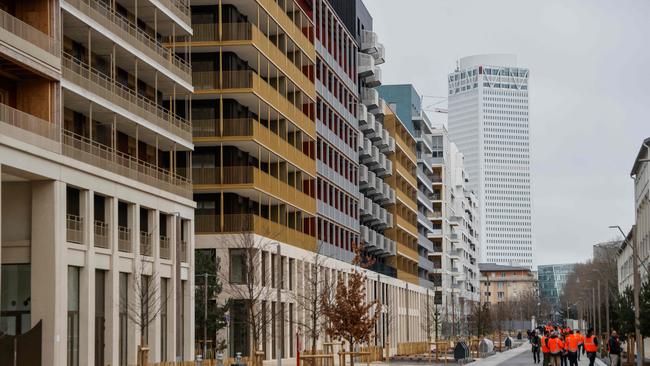
VILLAGE LIFE
The AOC has come under fire after announcing that Australian competitors would have to pack up and leave after their sports were over, instead of being allowed to stay until the end and cheer on their teammates, as they have at past Olympics.
The decision, the AOC says, was made because of the reduced number of beds available in the village.
But there is a silver lining for athletes after the AOC confirmed that while their passes won’t give them any special access to events, a limited number of tickets would be made available so they could watch other sports.
“Athletes’ accreditation is only to get them into their sport. The accreditation does not get them into any other sport,” Meares said.
“As a result, the Paris organising committee is providing one ticket per athlete per day per availability, which they will have to go through the process of applying for to be able to watch other sports.”
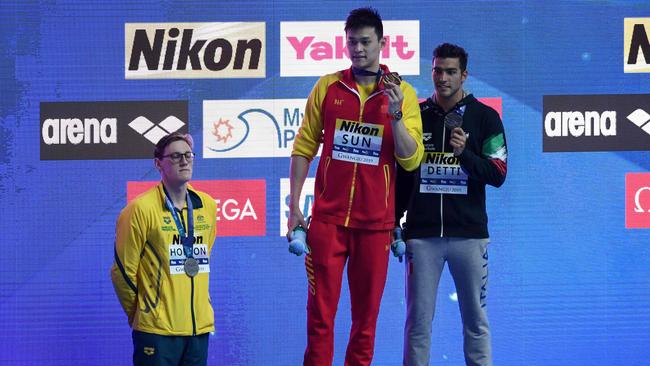
PROTESTS
When it comes to protesting, the French are gold medallists but for athletes, any demonstrations come with the risk of sanction.
The prospect of athletes protesting in Paris is rated especially high because of conflicts in Ukraine and Gaza and the revelations from this masthead that 23 Chinese swimmers were let off after testing positive to a banned drug before the last Olympics.
Meares said she did not expect any protests on the medal podium.
“In terms of athletes having a voice, for areas that they’re passionate about they certainly have platforms and opportunity to use that voice,” she said.
“As to how athletes use their voice and when they use that voice, the consensus, a very strong, overwhelming consensus was not on the field of play and not on the podium. Should that occur at Games time, that will obviously, require some conversation and, consult around if there’s any disciplinary measures as a result.”
Carroll said the AOC retained confidence in the World Anti-Doping Agency (WADA) after it promised to review the Chinese case.
“Our confidence in WADA hasn’t been affected. We have confidence in WADA undertaking a review as is World Aquatics.” he said.
“Obviously, we’ll await the outcomes of those reviews, but the Australian Olympic Committee has been dealing with WADA for a long time now.”
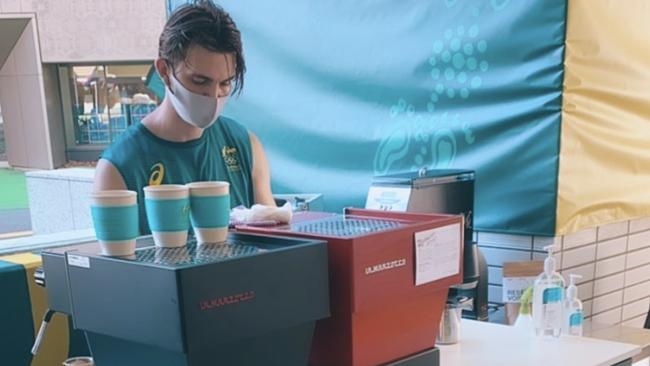
A LITTLE SLICE OF AUSTRALIA
The Aussie team will be made to feel at home in France with officials sending over supplies of Vegemite, Weet-Bix, Four’N Twenty Pies and even their own coffee maker serving up brews every morning.
“It might sound simple and little, but don’t underestimate the power of what familiarity and a taste of home can do for athletes who have already spent weeks if not months overseas on the road,” Meares said.
“We will be bringing back an exclusive barista service with three Australian baristas on the team,” Meares said.
“This has been the most asked question to me by athletes, is the barista coming back? yes it is.”
More Coverage
Originally published as 50 days from Paris: The burning issues addressed ahead of the Olympic Games




